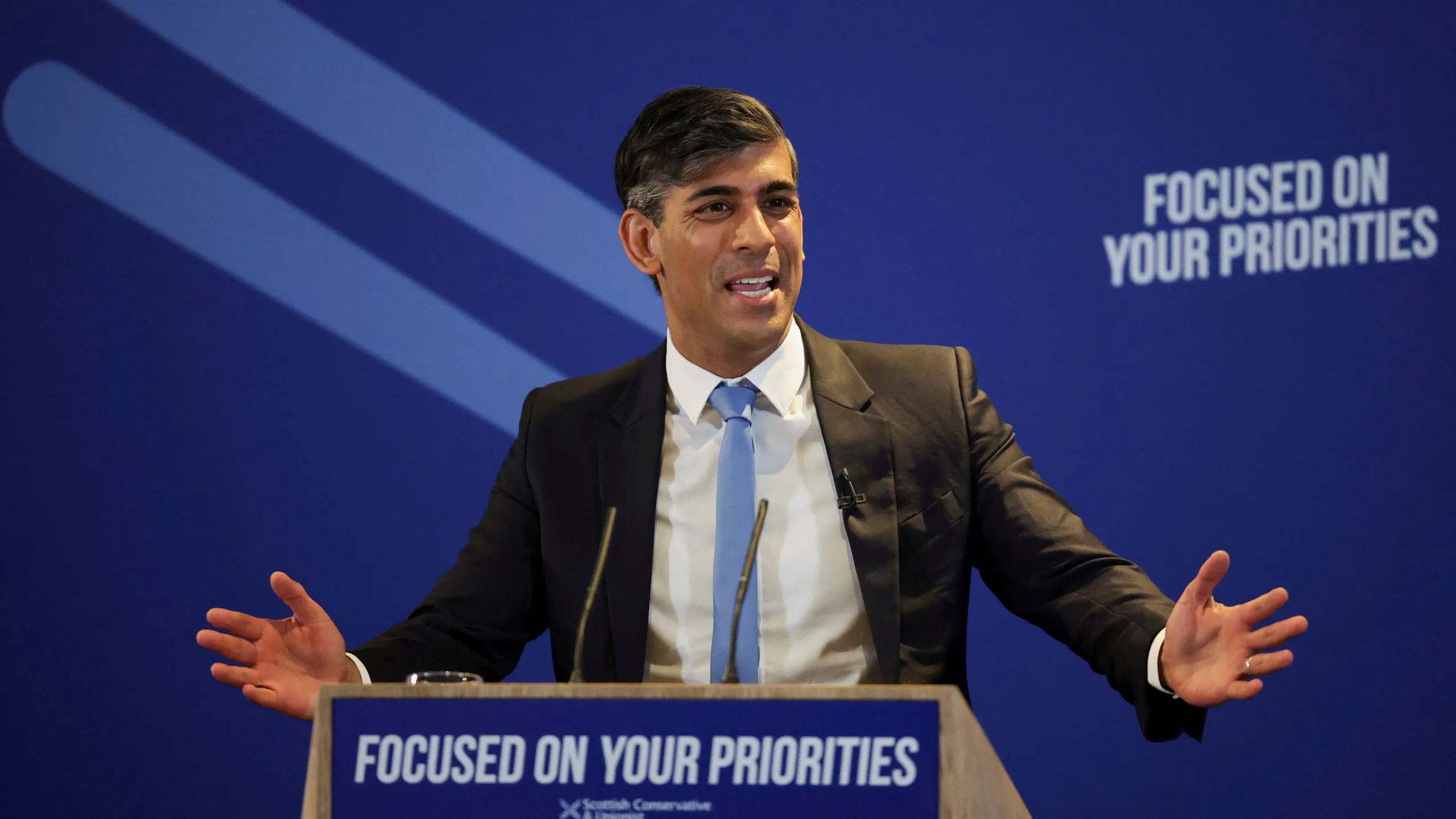On Thursday, the United Kingdom faces a pivotal general election, with the Conservative Party, led by Prime Minister Rishi Sunak, striving to defy predictions of a significant defeat at the hands of the center-left Labour Party.
The decision to call for elections six weeks ago caught many by surprise, as expectations had been for a later date, allowing economic factors like declining inflation and potential interest rate adjustments to play a more decisive role in voter sentiment.
The electoral landscape is complex, with multiple parties vying for seats in the 650-member House of Commons across England, Scotland, Wales, and Northern Ireland.
The outcome hinges on the peculiarities of the UK’s electoral system, where the popular vote share does not directly correlate with parliamentary seat distribution, potentially leading to either a Conservative or Labour majority government or necessitating coalition-building.
Labour, led by Keir Starmer, faces a daunting challenge despite consistent leads in polling over the past two years. To secure a narrow majority in Parliament, they would need to achieve a historic increase in their national vote share, reminiscent of Tony Blair’s landslide victory in 1997.

Nonetheless, uncertainties persist, with over 100 parliamentary seats considered too close to call, including those held by prominent Conservative figures like Finance Minister Jeremy Hunt and Prime Minister Sunak himself.
The election marks the first since 2019, when Boris Johnson’s Conservative Party won its largest majority since 1987, propelled by promises to complete Brexit amid political turmoil. Johnson’s tenure was marred by scandals, culminating in his resignation in 2022 and subsequent short-lived leadership changes within the Conservative ranks.
Sunak, now at the helm, has overseen a period of relative stability amidst economic challenges, including a persistent cost-of-living crisis and sluggish growth.
Central themes of the campaign have revolved around contrasting policy visions on critical issues such as housing, healthcare, and national defense. Sunak has warned of significant tax increases under Labour, while Starmer has countered with targeted tax policies aimed at specific groups rather than across-the-board rises as claimed by his opponents.
Polling stations will be open from 7 a.m. to 10 p.m. local time on Thursday, with an exit poll shortly afterward providing an initial indication of the election’s outcome. Overnight ballot counting will determine the final results, expected to be announced on Friday morning, shaping the political landscape and leadership of the United Kingdom for the foreseeable future.


